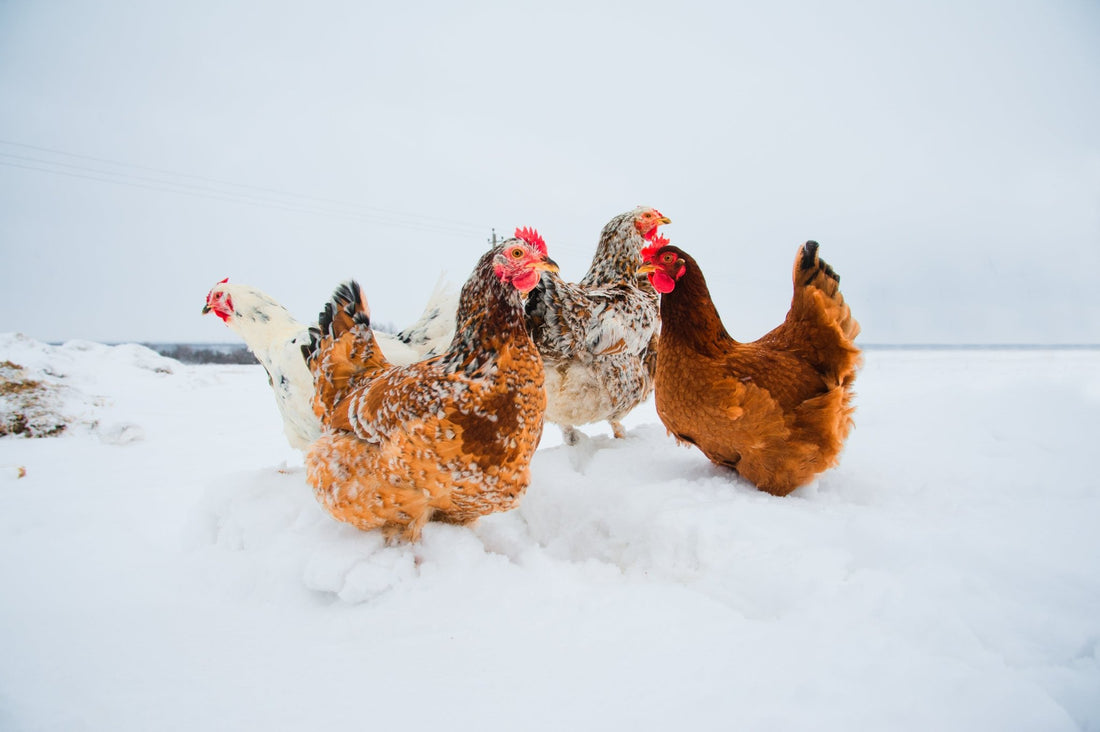When it comes to keeping chickens, one of the most important factors to consider is their ability to withstand cold temperatures. Depending on where you live, your chickens may be exposed to harsh winter weather, and it is important to know whether they are capable of handling it. In this article, we will explore the question of whether chickens are cold tolerant and offer tips for keeping your flock comfortable during the winter months.
Are Chickens Cold Tolerant?
The short answer to this question is yes, chickens are generally cold tolerant. In fact, many breeds of chickens are specifically adapted to colder climates, and they have developed a variety of strategies for surviving in sub-zero temperatures.
One of the main ways that chickens are able to survive in cold weather is by fluffing up their feathers. When a chicken fluffs up its feathers, it creates an insulating layer of air around its body that helps to trap heat and keep the bird warm. Additionally, chickens have a high metabolic rate, which means that they are able to generate heat more efficiently than many other animals.
However, it is important to note that not all chickens are equally cold tolerant. Some breeds, such as the Rhode Island Red and the Plymouth Rock, are known for their hardiness and ability to withstand cold temperatures, while others, such as the Leghorn, are less cold tolerant and may require additional measures to stay warm.
Tips for Keeping Your Chickens Warm
While chickens are generally able to handle cold temperatures, it is still important to take steps to keep them comfortable during the winter months. Here are some tips for keeping your chickens warm and healthy:
Provide Adequate Shelter
The most important factor in keeping your chickens warm during the winter is providing them with a dry, draft-free shelter. This can be a traditional coop or a modified shed, but it should have a solid roof, solid walls, and adequate ventilation to prevent the buildup of moisture.
Use Bedding
Using bedding in your chicken coop is important for keeping your chickens warm and dry. Good bedding materials include straw, hay, and wood shavings. Make sure to clean out the bedding regularly to prevent the buildup of moisture, which can lead to respiratory problems in your chickens.
Provide Roosts
Chickens naturally roost at night, and providing them with a roosting area can help to keep them warm. Roosts should be placed at least 18 inches off the ground and should be wide enough to allow the chickens to comfortably perch.
Install Heaters (with caution)
While heaters can be effective at keeping your chickens warm, they should be used with caution. Heaters can be a fire hazard, and they can also cause your chickens to become too dependent on artificial heat. If you do choose to use a heater, make sure to place it in a safe location and monitor it closely.
Offer Extra Food and Water
During the winter months, your chickens will burn more calories to stay warm. Make sure to provide them with extra food and water to help them maintain their energy levels. You may also want to consider adding electrolytes to their water to help keep them hydrated.
Provide a Dust Bath
Dust baths are an important part of chicken hygiene, and they can also help to keep your chickens warm. Dust baths help to remove excess oil from the feathers and skin, which can improve insulation. Make sure to provide your chickens with a dust bath area that is protected from the elements.
Consider Insulating Your Coop
If you live in an area with particularly harsh winter weather, you may want to consider insulating your chicken coop. This can help to keep the temperature inside the coop more consistent and can make it easier for your chickens to stay warm.
Chickens are generally coldtolerant, but it is still important to take steps to keep them comfortable during the winter months. By providing your chickens with a dry, draft-free shelter, using bedding, offering roosts, providing extra food and water, offering a dust bath, and considering insulation, you can help your chickens stay healthy and happy all winter long.
It is important to note that while chickens are generally able to handle cold temperatures, there are some situations where additional precautions may be necessary. For example, young chickens, old chickens, and chickens with pre-existing health conditions may be more susceptible to cold weather and may require extra care. Additionally, if you live in an area with extreme winter weather, you may need to take additional steps to ensure the health and safety of your chickens.
If you are unsure about how to care for your chickens during the winter months, it is always a good idea to consult with a veterinarian or experienced chicken owner. They can provide you with advice on how to keep your flock healthy and comfortable, and they may be able to recommend specific strategies that are tailored to your particular situation.
While chickens are generally cold tolerant, it is important to take steps to keep them comfortable and healthy during the winter months. By providing your chickens with a warm, dry, draft-free shelter, using bedding, offering roosts, providing extra food and water, offering a dust bath, and considering insulation, you can help your chickens stay happy and healthy all winter long. With a little bit of extra care, you can ensure that your chickens are able to thrive, even in the coldest of temperatures.

